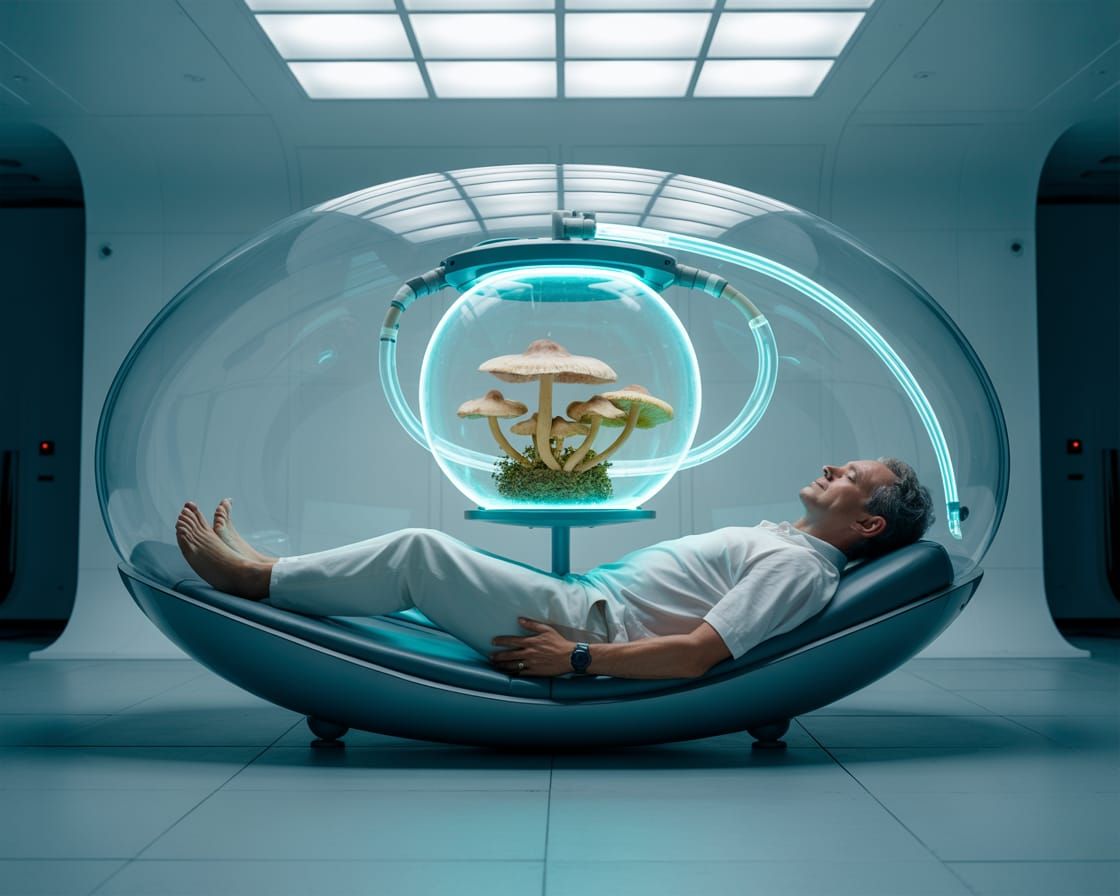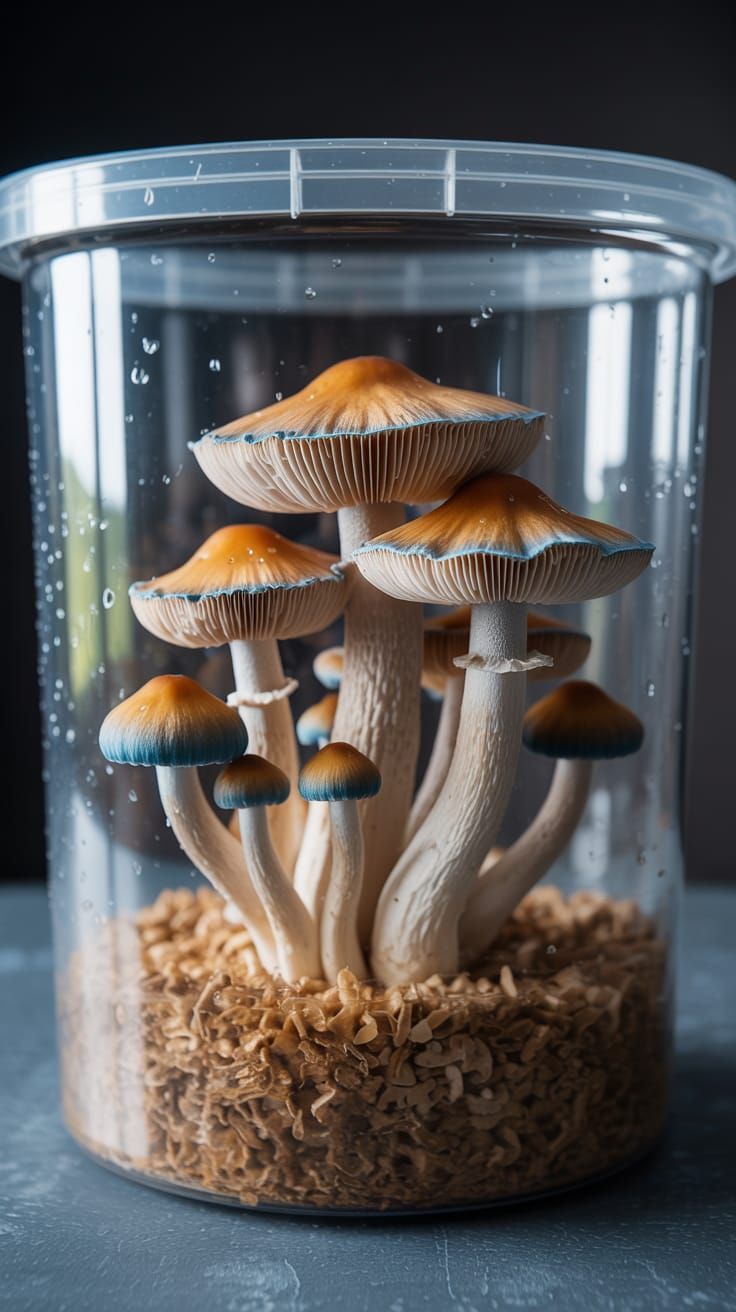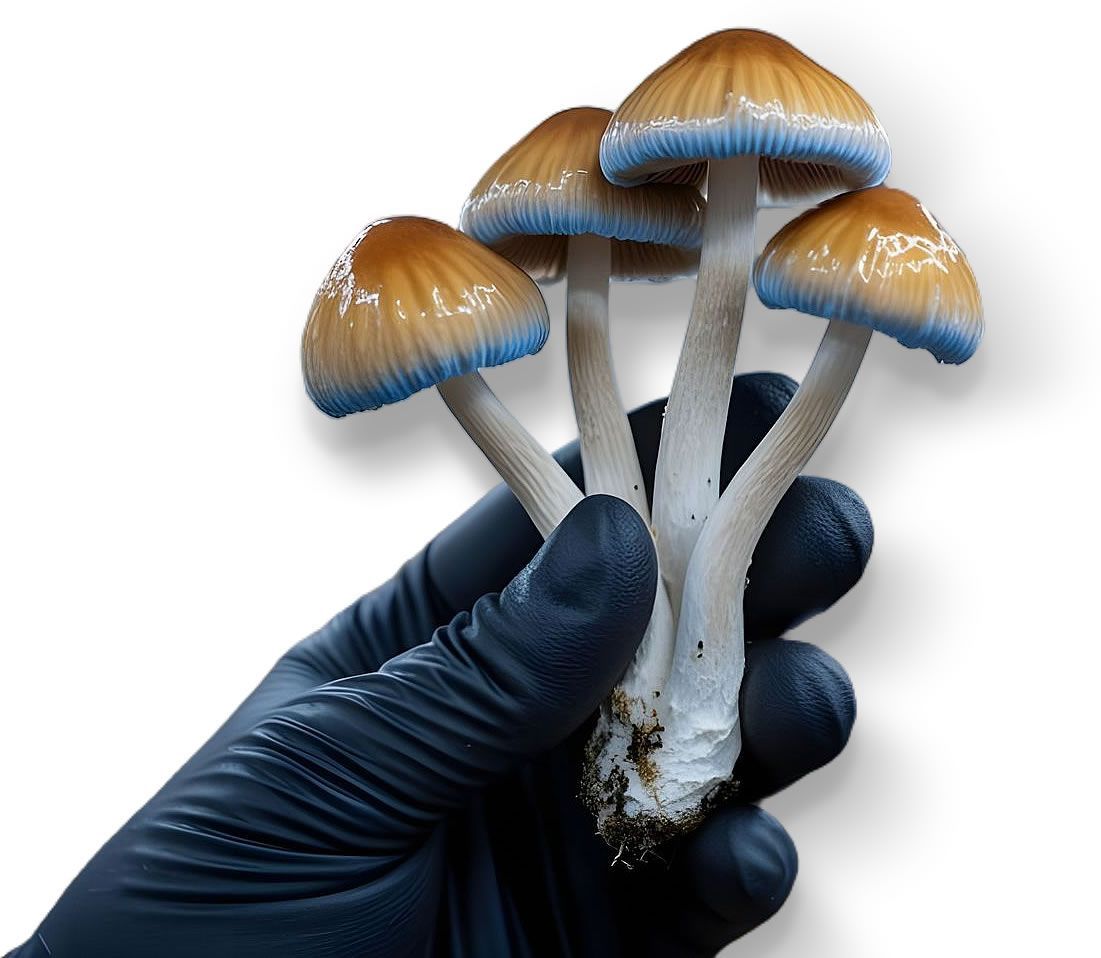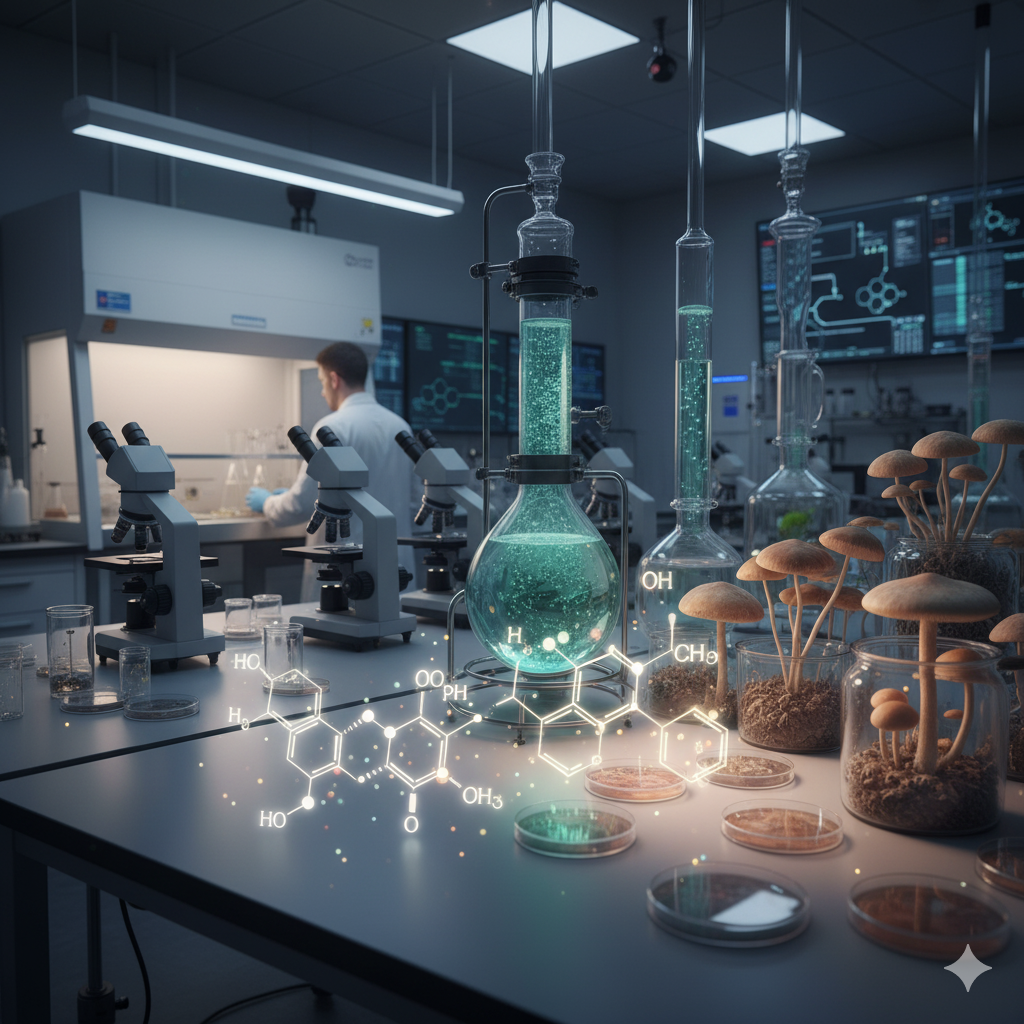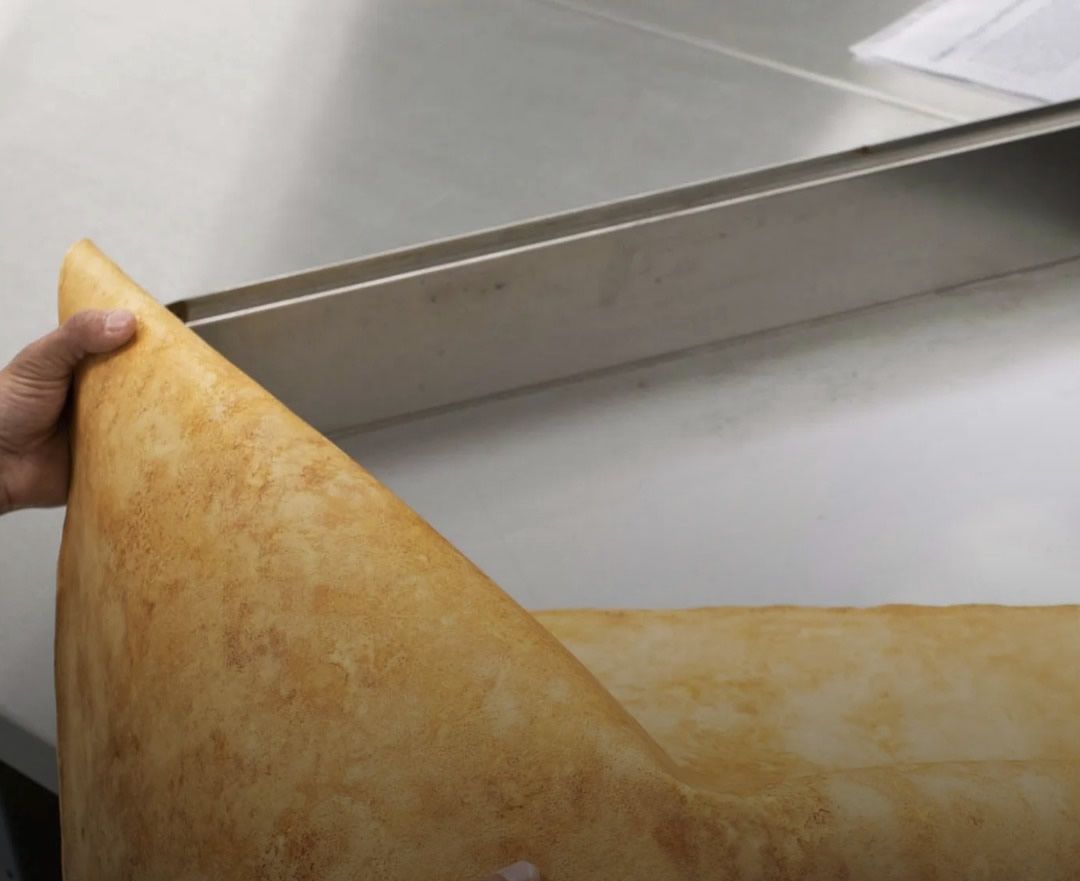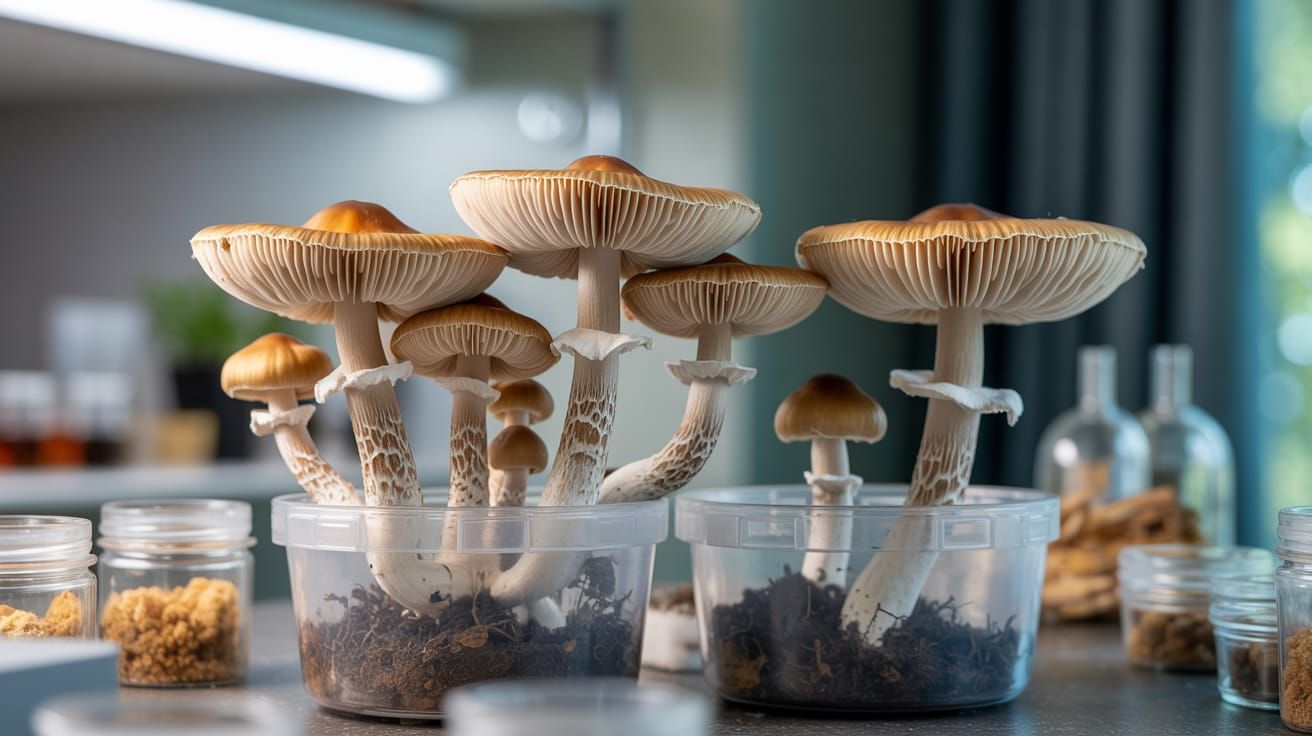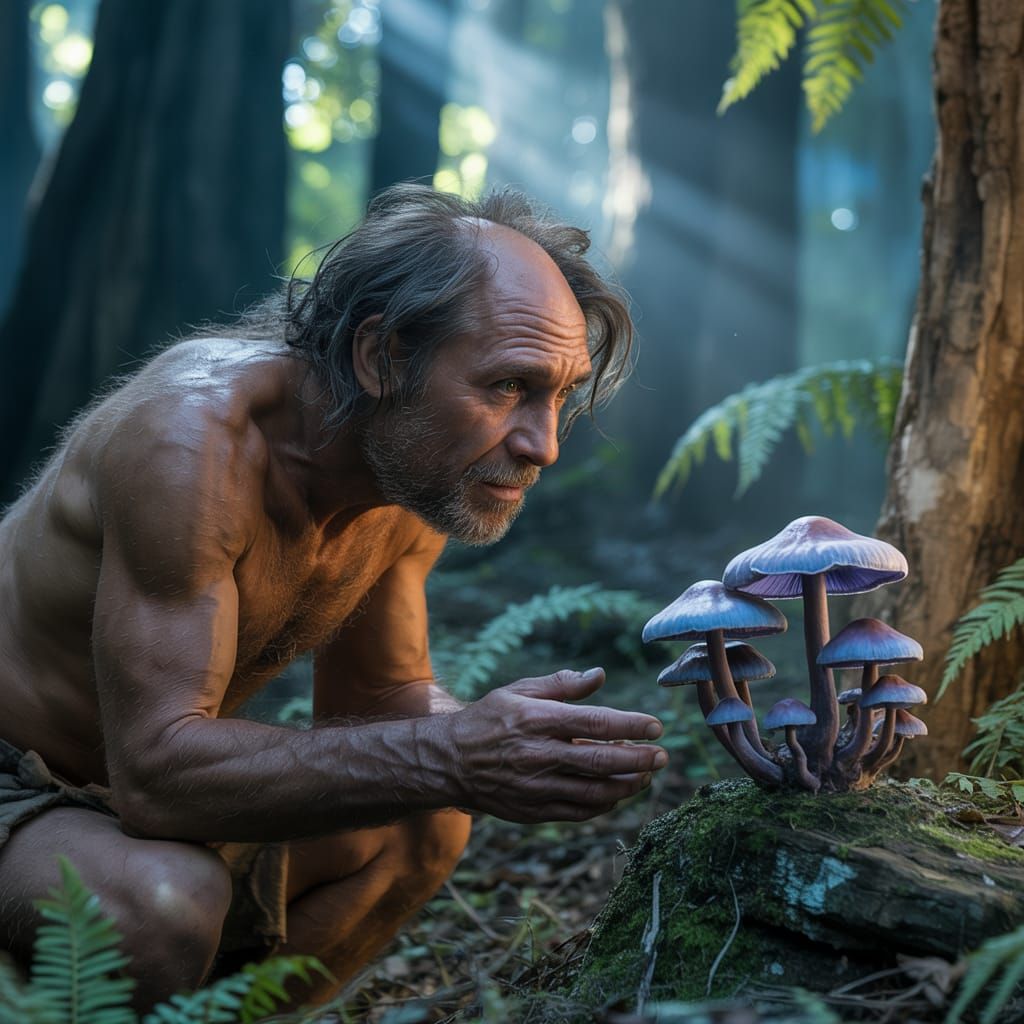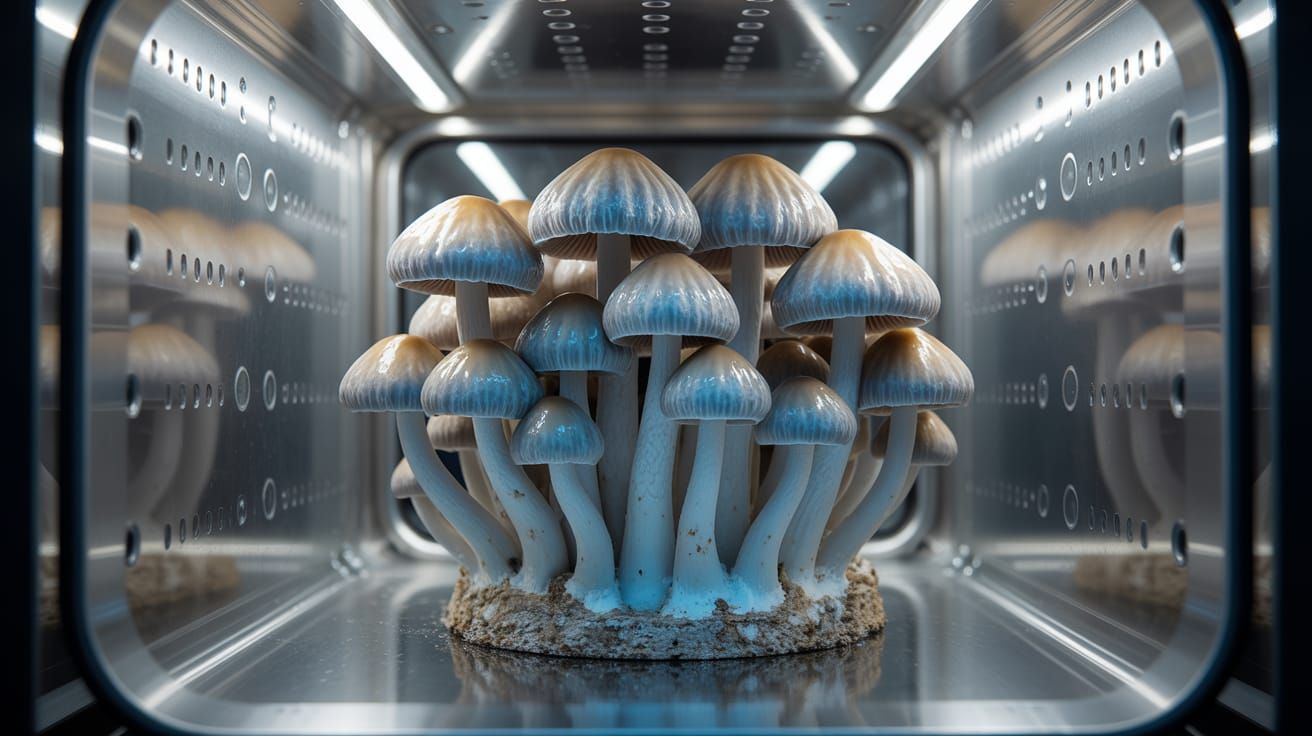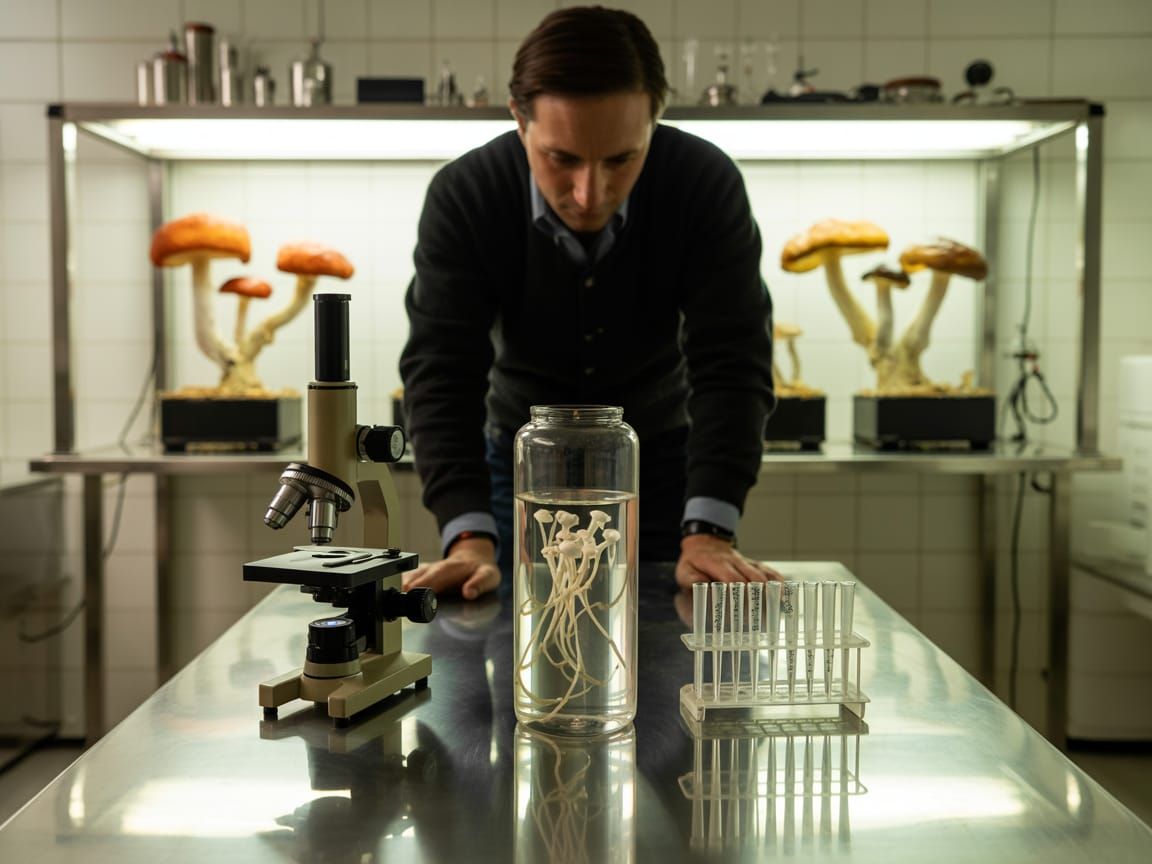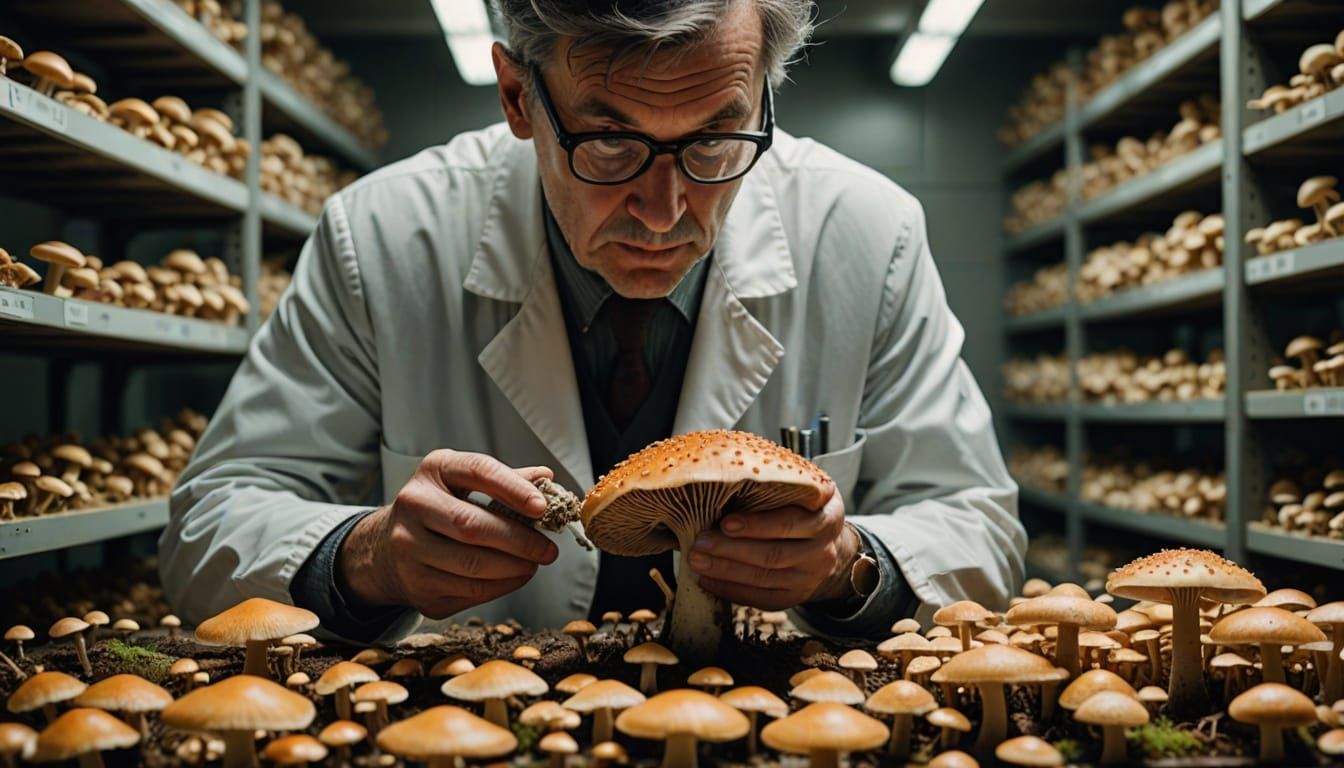Could Magic Mushrooms Slow Down Aging? Science Says... Maybe!
what if these mind-expanding fungi could also help you live longer?
You’ve heard the stories — magic mushrooms can open your mind, heal trauma, and maybe even help you talk to God. But what if these mind-expanding fungi could also help you live longer? And not just in a "you had a cool trip and feel young again" kind of way — we’re talking real, biological anti-aging effects at the cellular level.
Welcome to the cutting edge of mushroom research, where psilocybin, the active compound in Psilocybe cubensis, is being looked at not just as a mental health miracle, but as a potential longevity enhancer. In a new study that feels like it was pulled straight from a sci-fi novel, researchers treated human cells — and even elderly mice — with psilocybin and found something pretty wild: the cells aged slower, and the mice lived longer.
Yeah. Let that sink in.
The Psilocybin-Telomere Connection: Science or Sorcery?
This research is inspired by what's called the psilocybin-telomere hypothesis. Telomeres are little protective end caps on your chromosomes, kind of like the plastic tips on shoelaces. Over time, stress, inflammation, and just plain living cause them to wear down. When they get too short, the cell can’t divide anymore — which is basically the beginning of biological old age.
Now here’s where it gets trippy: poor mental health has been linked to shorter telomeres. That means if you’re depressed, anxious, or chronically stressed, your cells might literally be aging faster.
Since psilocybin — especially from classic strains like Golden Teacher — has been shown to alleviate depression and anxiety, scientists began wondering: could it also help protect our telomeres?
Turns out, the answer might be yes.
How Mushrooms Could Be the Fountain of Youth
In the lab, scientists exposed cultured human lung cells to psilocin — that’s the compound your body turns psilocybin into after you ingest it. When the cells were given 10 micrograms of psilocin, they lived 29% longer. Bump that up to 100 micrograms, and the cells survived 57% longer.
They ran the same experiment on adult human skin cells and found a 51% increase in lifespan at the higher dose.
Let’s break that down: mushroom compounds extended human cell life by half. That's not metaphor — that’s real, biological extension.
Behind the scenes, several things were happening:
- Telomere degradation slowed down
- A longevity-related enzyme called SIRT1 was boosted
- Damage-related proteins like GADD45a decreased
In short, psilocin helped the cells keep their DNA cleaner, healthier, and younger — for longer.
From Petri Dish to Real Life: Tripping Mice Live Longer
Of course, it’s one thing to make cells live longer in a dish. It’s another to keep actual animals alive. So, scientists gave monthly doses of psilocybin to elderly mice (the human equivalent of 60- to 65-year-olds) for 10 months. Here's what happened:
- 80% of psilocybin-treated mice survived the full 10 months
- Only 50% of untreated mice made it
- Treated mice looked younger, with better fur quality and less graying
Let’s be clear: these mice weren’t microdosing for a weekend retreat. They were in a long-term, low-dose protocol — and it worked. Not only did they live longer, they looked and moved younger, too.
So what we’re possibly seeing here isn’t just anti-aging in a cosmetic sense — it could be a true slowing of biological aging. Mushroom-powered longevity, folks.
The Future: Mushrooms and the New Age of Bio-Medicine
If this research holds up, it opens the door to a whole new mushroom-based medical industry. Imagine pharmaceuticals derived from compounds in mushroom spores — not just for mood disorders, but for cancer, cardiovascular health, Alzheimer's, and even lifespan extension.
We could be looking at an entire generation of biotech startups and pharmaceutical research centers based on humble cubensis mushrooms. With strains like Golden Teacher, spore prints, and spore syringes now widely available for microscopy and research, the groundwork is already laid.
You might even see a future where telomere-protecting mushroom tech leads to:
- Longevity supplements based on myco-nutrients
- DNA repair therapies using psilocybin derivatives
- Preventative aging treatments targeting cellular senescence
- Cognitive enhancement tools to reverse age-related decline
We’re talking beyond wellness. This could become precision medicine powered by fungi.
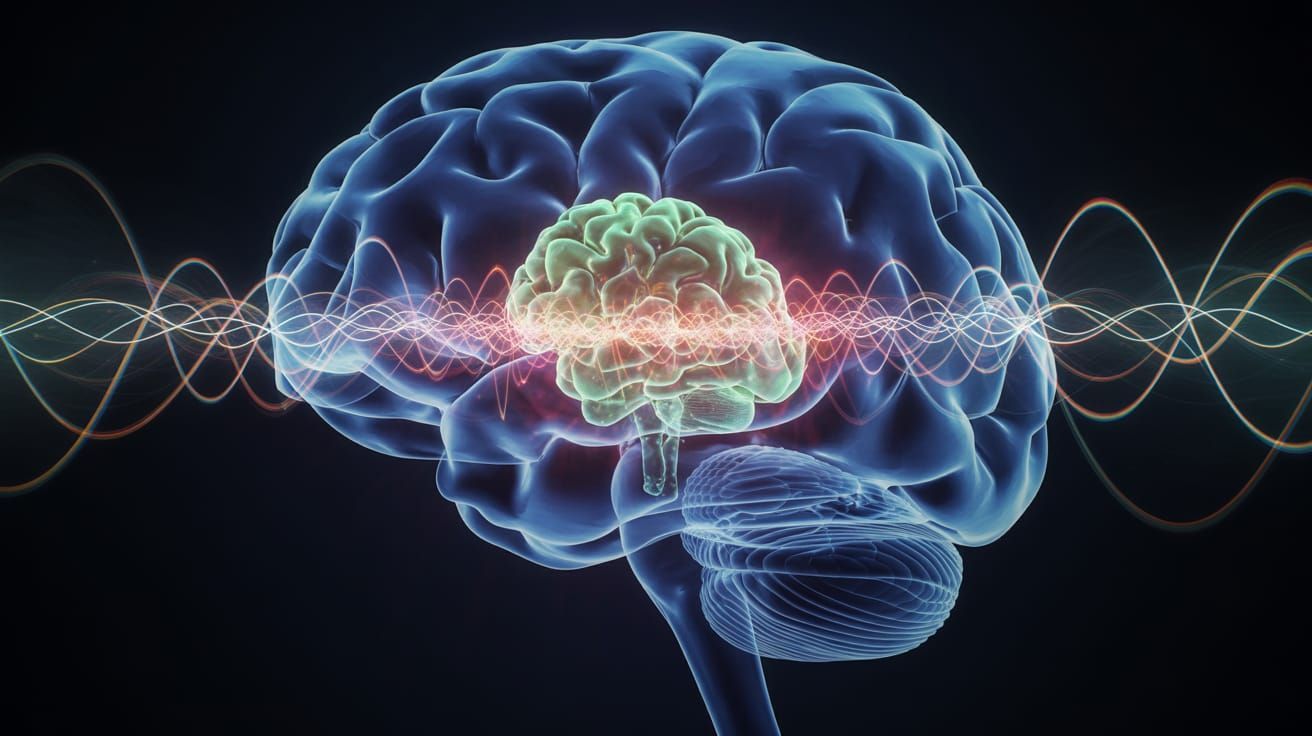
Slow Down — But Not Too Fast
As exciting as this all is, even the researchers behind the study are urging caution. Dr. Kosuke Kato, one of the lead authors, said:
“There is still a lot to understand, including optimal dosing protocols that will lead to maximal efficacy. We also need to better understand the potential risks of long-term psilocybin treatment before this type of treatment is ready for public use."
In other words: the future is bright, but we’re not there yet. There’s still a lot of testing and regulation before any of this hits the shelves at your local mushroom wellness spa.
But we’re closer than we’ve ever been.
Final Thought: The Wisdom of the Mushroom
Maybe it’s no coincidence that the most famous mushroom variety is called the Golden Teacher. This humble fungi has been teaching humans for generations — through introspection, through healing, and now possibly, through longer life.
As the science continues to evolve, the spore doesn’t just symbolize growth anymore — it could be the blueprint for a longer, healthier, and more meaningful life.
So if you're ready to explore the world of mycology and research your own specimens, check out our collection of spore syringes, spore prints, and high-quality mushroom spores for microscopy and study.
The mushroom future is coming.
And it looks… young.


